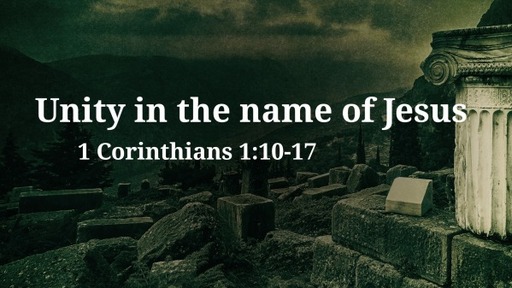Unity in the name of Jesus

A Proper Glory (10-11a)
A Proper Loyalty (11-13)
There is, it is true, a certain degree of honour that is due to Christ’s ministers, and they are also themselves masters in their own place, but this exception must always be kept in view, that Christ must have without any infringement what belongs to him—that he shall nevertheless be the sole Master, and looked upon as such. Hence the aim of good ministers is this, that they may all in common serve Christ, and claim for him exclusively power, V 1, p 67 authority, and glory—fight under his banner—obey him alone, and bring others in subjection to his sway.
In short, the unity of the Church consists more especially in this one thing—that we all depend upon Christ alone, and that men thus occupy an inferior place, so as not to detract in any degree from his pre-eminence.
A Proper Function (14-17)
This truth needed no artificial dress; it shone out with the greatest majesty in its own light, and prevailed in the world by its divine authority, and the demonstration of the Spirit, without any human helps. The plain preaching of a crucified Jesus was more powerful than all the oratory and philosophy of the heathen world
